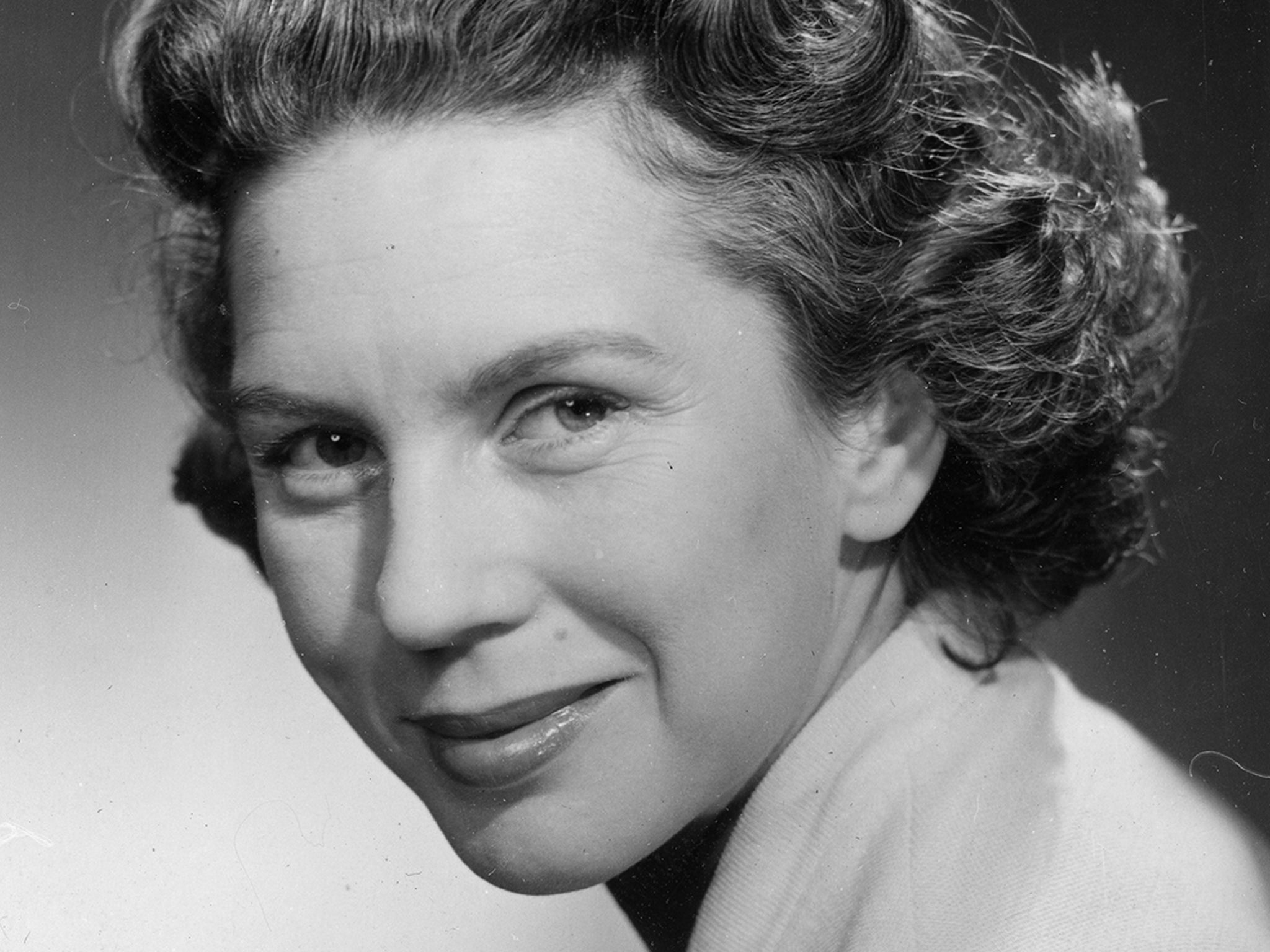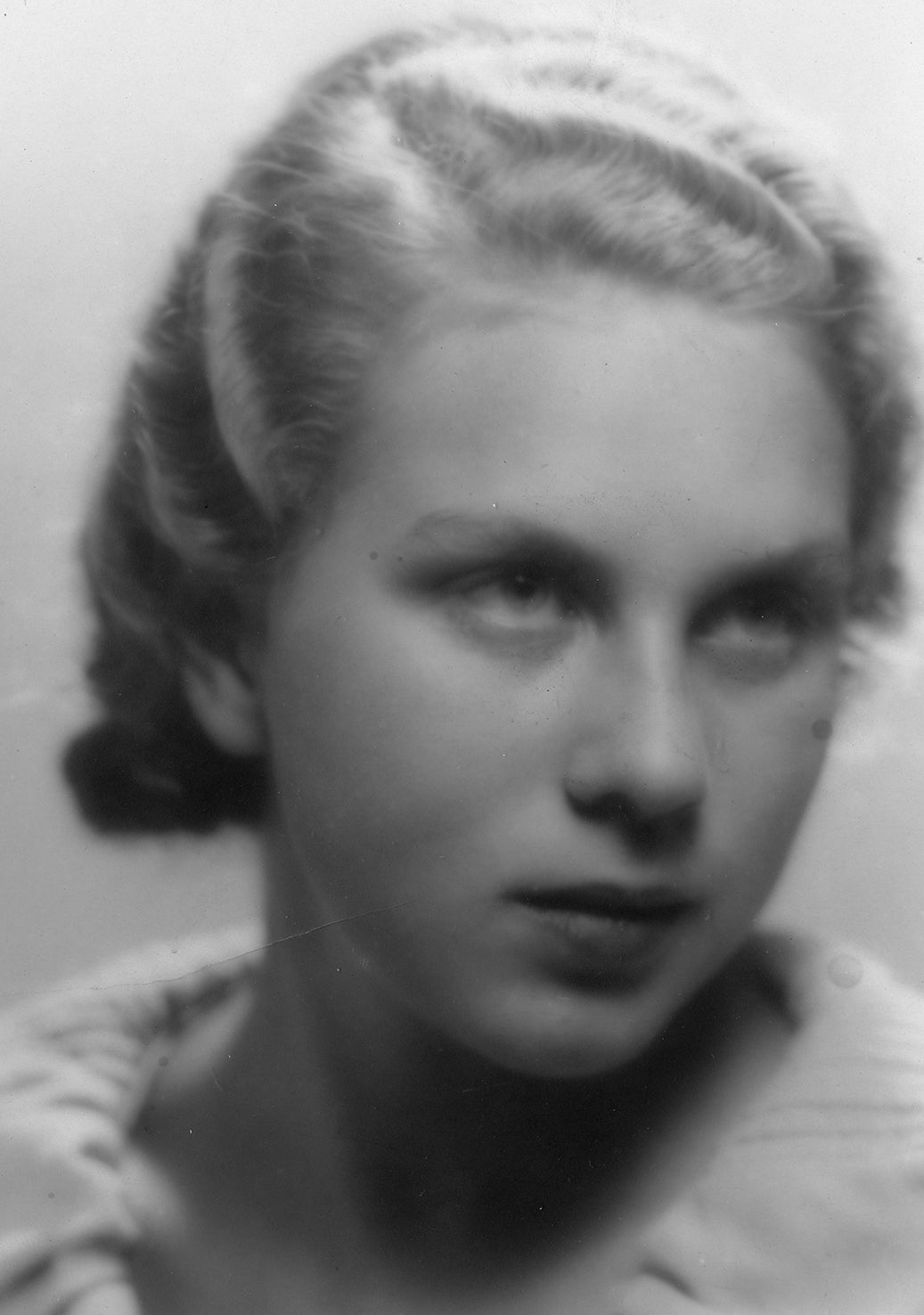Jeannie Rousseau, spy for the French Resistance
Her intelligence on a German secret weapons programme led to one of the most ambitious bombing raids of World War 2

Your support helps us to tell the story
From reproductive rights to climate change to Big Tech, The Independent is on the ground when the story is developing. Whether it's investigating the financials of Elon Musk's pro-Trump PAC or producing our latest documentary, 'The A Word', which shines a light on the American women fighting for reproductive rights, we know how important it is to parse out the facts from the messaging.
At such a critical moment in US history, we need reporters on the ground. Your donation allows us to keep sending journalists to speak to both sides of the story.
The Independent is trusted by Americans across the entire political spectrum. And unlike many other quality news outlets, we choose not to lock Americans out of our reporting and analysis with paywalls. We believe quality journalism should be available to everyone, paid for by those who can afford it.
Your support makes all the difference.Jeannie Rousseau was just 20 years old when World War 2 broke out, but her young age did not deter her from joining the French Resistance. If anything, it gave her the strength to do so. By 1941 she had managed to get a job which gave her access to vast amounts of intelligence on the German military. Still, that knowledge was going to waste. “I was storing my nuts, but I had no way to pass them on,” she later said.
Then, on a night train from Paris to Vichy, she had a chance encounter with an old acquaintance from university – a certain Georges Lamarque – who was then building the Druids, an intelligence gathering network within the Resistance. Every seat was taken, so they stood in the corridor, under a flickering light bulb. In hushed tones, he asked whether she would work with him. She instantly agreed.
This collaboration would lead to one of the most important intelligence findings of the war. Through her constant contact with German officers she learned of the secret weapons programme behind the V1 and V2 missiles – long-range rocket bombs of an entirely new type. In his foreword to the report which he sent to London, Lamarque wrote: “This material looks preposterous. But I have total faith in my source.”
Of the source, British intelligence was told only that it was “a young girl, the most remarkable of her generation”. The report soon reached Winston Churchill’s desk. Based on that and other intelligence, the British Prime Minister decided that the Peenemünde site, where these superweapons were being developed, must be attacked “on the heaviest possible scale”. Close to 600 bombers were deployed to bomb the site, deep inside German territory. The attack caused heavy casualties at a neighbouring labour camp, but also succeeded in delaying progress on the bombs by several weeks.
Rousseau was born in St Brieux, Brittany, the daughter of Jean and Marie Rousseau. When the Germans invaded Paris in 1940, Jean, then the mayor of Paris’s 17th arrondissement, moved the family to Dinard, Brittany, naively believing the Germans would never reach that town.
But the Germans soon arrived. When the mayor of Dinard said he was desperate for a German speaker to liaise with the army command, Jean volunteered his daughter. “She doesn’t want anything but to serve,” he said, not realising she wanted nothing less than to serve the Germans. Rousseau, who had a knack for languages and spoke fluent German, started relaying information she had heard to a local branch of the Resistance. “What’s the point of knowing all that, if not to pass it on?” she said.

Nazi spies in London detected vast amounts of intelligence being gathered from the Dinard area and suspected the presence of a well-placed agent. Rousseau was arrested by the Gestapo in January 1941, but was soon released: German officers would not contemplate that their charming translator might be a spy. Nonetheless, she was ordered to leave the coast. She returned to Paris, where she took up a role at a French chamber of commerce, again liaising with the Germans. The intelligence she had access to in that capacity was of greater significance, and that is when she started working with Lamarque, under the codename Amniarix.
Rousseau knew how to be discreet as much as she knew how to be charming. No one questioned her presence at frequent evening gatherings of German officers on the Avenue Hoche. She also knew how to prompt further revelations. “I teased them, taunted them, looked at them wide-eyed, insisted that they must be mad when they spoke of the astounding new weapon that flew over vast distances, much faster than any airplane. I kept saying: ‘What you are telling me cannot be true!’” But she did not play any “Mata Hari games”, as she put it, referring to the courtesan who was convicted of spying during World War 1.
By 1944, Rousseau had so impressed the British that they planned to bring her to London for debriefing, shortly before D-Day. But the Germans blew the operation, and she was arrested. She was sent to a concentration camp, then on to a labour camp, where she refused to work, invoking her rights under the Geneva Convention. Others followed in the protest, convinced as they were by Rousseau’s account of D-Day that liberation was nigh. But it was months before the camp would be freed, and several women died as a result. One fellow prisoner, Loulou Le Porz, thought Rousseau had made a tragic error of judgment by starting the protest. “She was unusual, impulsive,” Le Porz said of Rousseau. “Of course, it is all very well to have courage, but you must know how to use it.”
Though tortured in the camps, Rousseau survived. While convalescing at a tuberculosis sanatorium in Sweden, she met Henri de Clarens, who would become her husband. He was also a survivor of the camps. Together they had two children. Asked whether the couple ever told them about the war, she said they did, once. It went badly, she said, because “it was too hard for us to tell”.
At first she also preferred not to speak about the war publicly. But in 1993 she was honoured at an award ceremony held by the CIA. Speaking in flawless English at the event, she explained why she was gradually emerging from the shadows: “Perhaps it stirs us to think that if memory does not repeat itself, at least it stutters, and we might perhaps learn two or three little things from the past. Not from me, but perhaps through me.” She finally opened up about her role in the Resistance in 1998, to a Washington Post reporter. Recognition in her own country came only later with an interview on French public radio and her elevation to the rank of Grand Officier of the Légion d’Honneur.
After the war she worked as an interpreter for the United Nations and other international organisations. In old age she lost nothing of her allure, though her voice deepened from heavy smoking and she suffered from Alzheimer’s disease. She is survived by her children Pascal and Arianne, but was predeceased by Henri.
Once asked why she acted the way that she did during the war, Rousseau said: “Because I was there. Period. And because I was very young.” And she added: “Resistance is a state of mind, we can exercise it at any moment.”
Jeannie de Clarens, née Rousseau, WW2 spy: born 1 April 1919, died 25 August 2017
Join our commenting forum
Join thought-provoking conversations, follow other Independent readers and see their replies
Comments